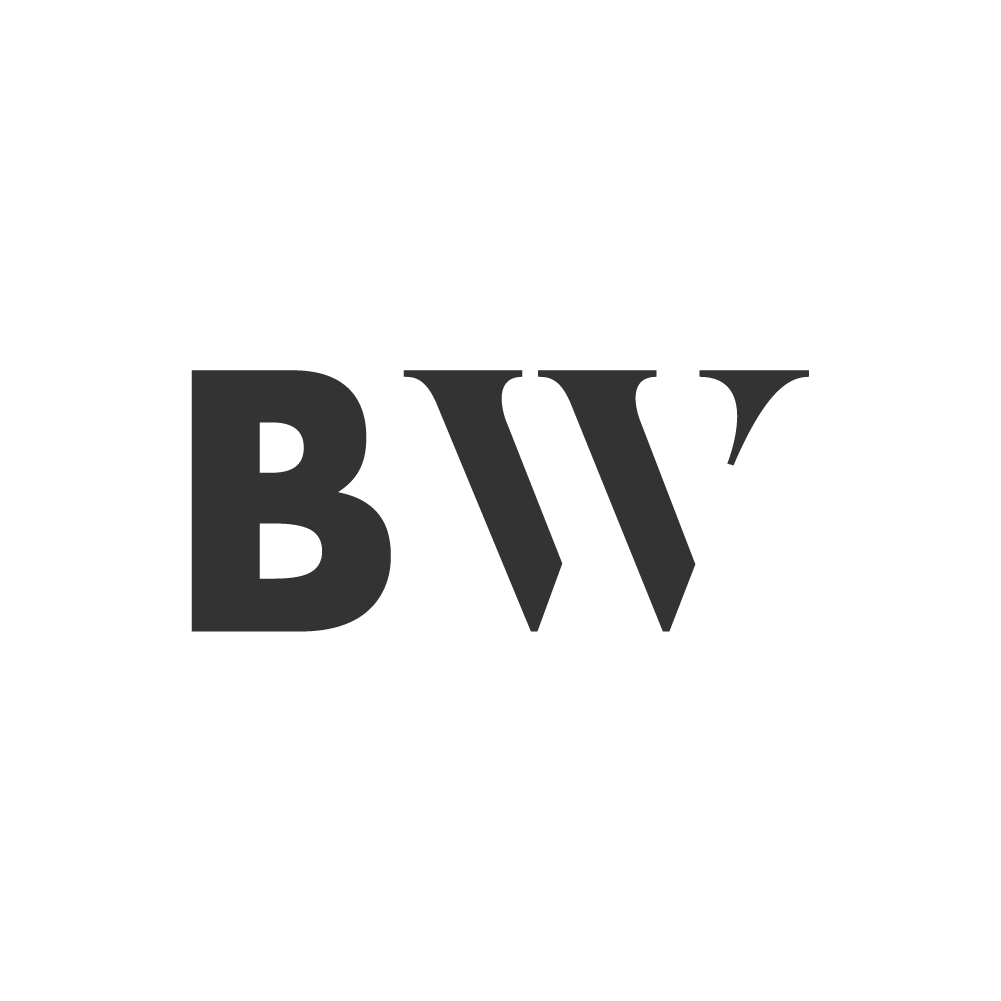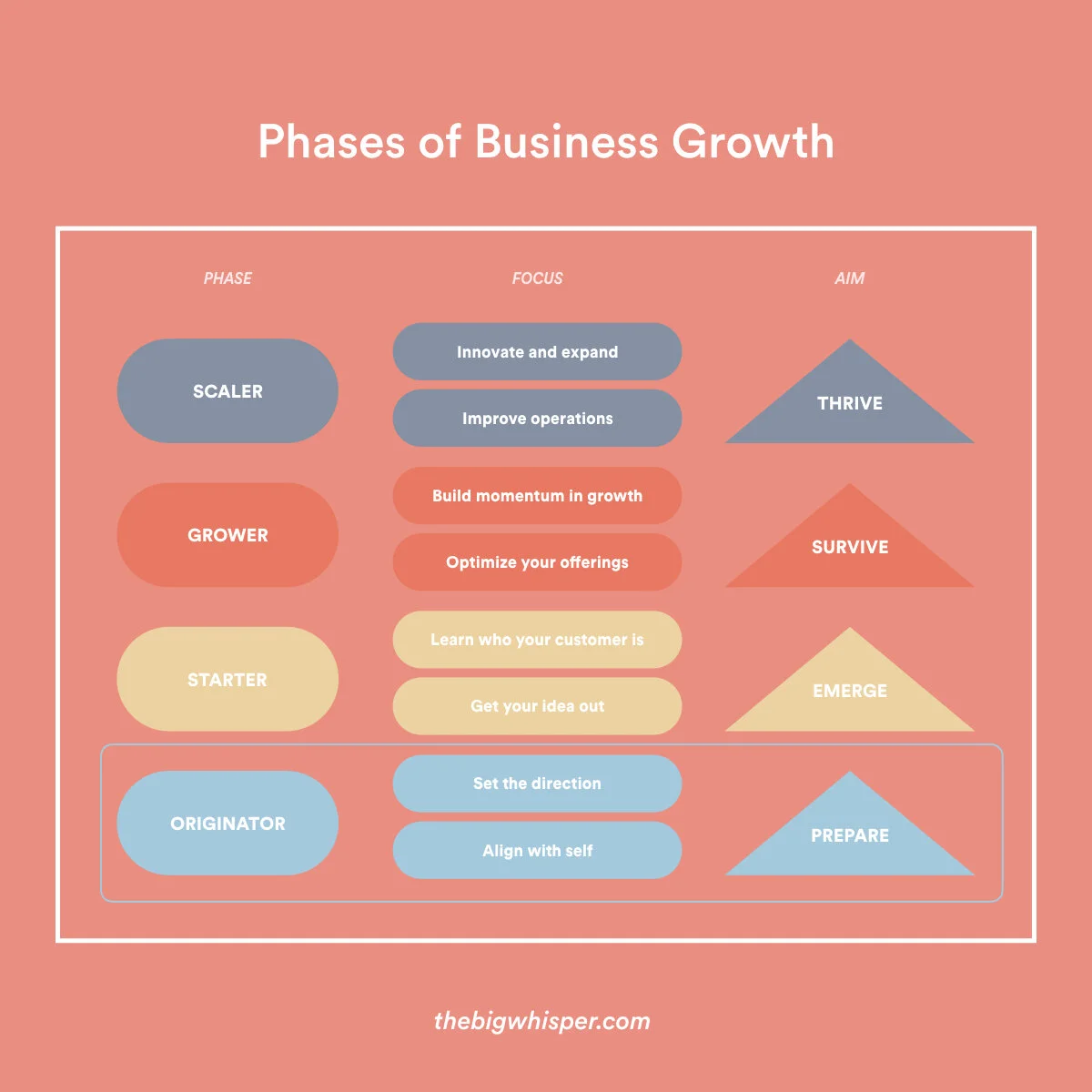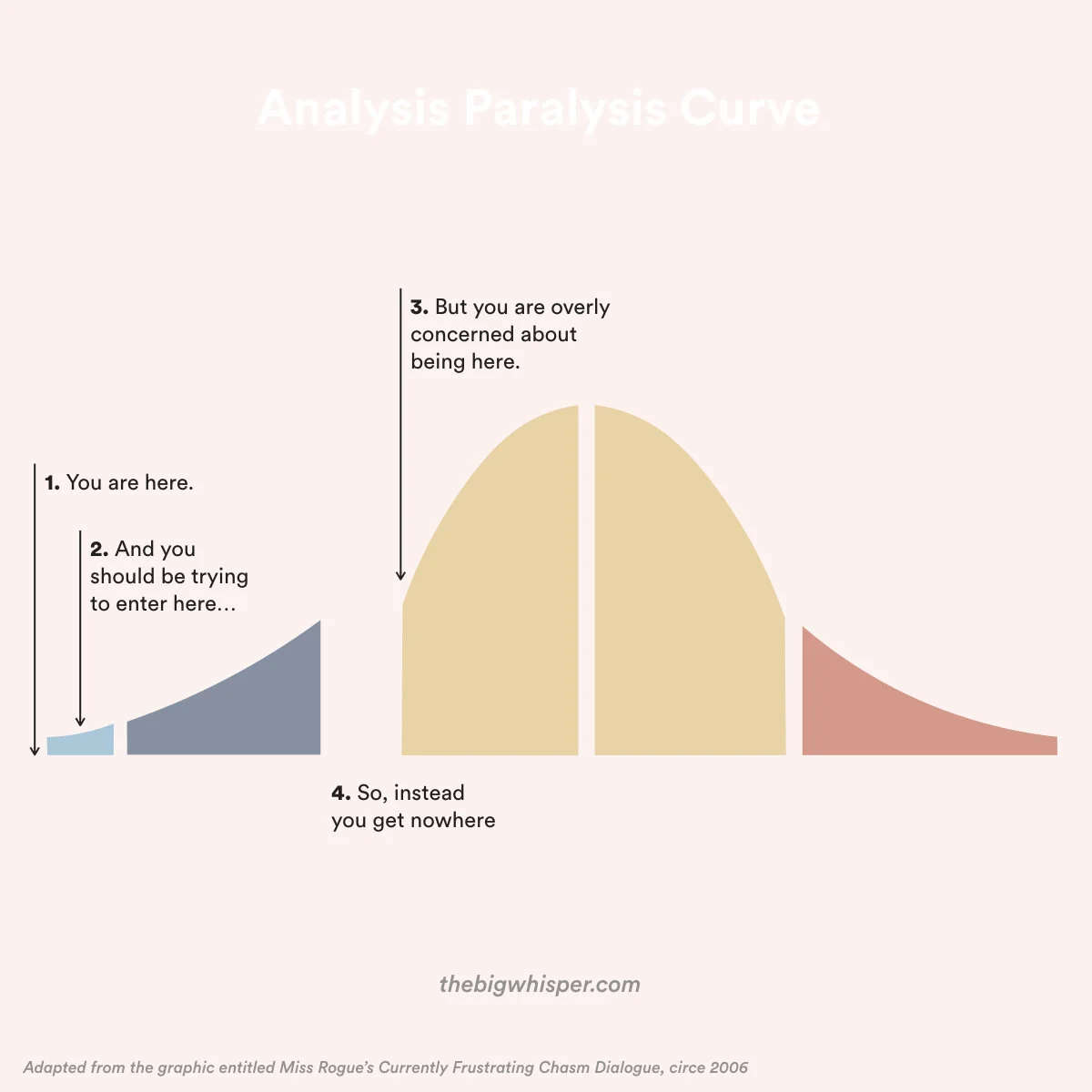Are you in the Originator Phase of your entrepreneurial endeavor? How to know and how to approach this phase of creating/building
The surest way to actualize what you set out to do with what you’re creating is to raise awareness to and honor exactly where you are at in the process... then thoroughly do the work for *that* phase and build from there. Because a lot of times what happens is when we are in a process and focused on the outcome several steps ahead, we end up going nowhere. Exhibit a:
Like someone learning to ski, you start on the bunny slope and as your body learns the movements and your mind feels more confident, you graduate to new slopes. It’s the same with building an entrepreneurial endeavor. As you learn the movements of each phase of building, your mind and heart will know when it’s time to layer on the next level of work to advance on your journey.
It all begins with the Originator Phase. Below is a comprehensive guide to knowing if you’re in this phase along with exactly what to prioritize to thrive at this moment of the journey.
Article includes:
What it means to be in the Originator Phase
How to know if you’re in it and ready for the work of this phase
The primary aim for this phase
The primary focus for this phase
The priorities for this phase
Things people think they need to know or do at this phase but don’t necessarily
What you DO need to know or do for this phase
What it means to be in the Originator Phase
This is the first phase of building, leading up to this point you’ve considered the idea of doing something, you’ve thought about it maybe, you’ve talked about it with friends, you’ve perhaps had memories of a time when you were younger when you knew one day you wanted to do this, all that has led up to you finally being more explicit and saying “Ya know what I’m going to give this a shot.” You are in the beginning days of being an Originator when you have a clarified, or generally clarified an idea of what you want to do. At this phase while if you had a clear sense of the how, the why, the who, that’s great, but the majority of folks at this phase have a seedling of what they want to do and have made a decision to explore and pursue the idea more explicitly and the work of this phase is guiding the way to figure out that how, why and who.
A lot of what people feel during this stage is a combo of excitement and fear, a certain kind of liberation in opening themselves up to the idea of building with a decent dose of self-doubt “how do I do this? Can I do this? Do I even know how to do this?”
The work necessary in the Originator phase is actually work a lot of more established founders overlook, and it ultimately affects them in ways later on. It’s the work of getting crystal clear with *yourself* up front of what’s going on, more emotionally, internally with you. It’s a phase that, when honored, involves a lot of introspection and facing oneself—which can be incredibly scary, overwhelming and intimidating. The founders who skip over the work of this phase are able to move forward and gain success but it’s typically at the expense of healthy nurturing of the self, and most oftentimes the founders who skip this work or some of the work of this phase, eventually have some self-reckoning to do later on that can inhibit growth.
How to know if you’re in or ready for the Originator Phase
While this will be different for everyone below is a list of things that if you’re checking yes to most of the below you’re probably ready or already in the Originator Phase:
The feeling of excitement to move forward is mostly overriding your fears
You have a working idea of what you want to try out create, even if it’s not crystal clear, it’s become recently more clear and you have curiosity to explore it more
You feel a readiness to put some time and energy into working on the idea with some more intention and focus
You’re feeling some resistance about it but also the concept of not taking steps towards your idea is less desirable
Primary aim for this phase
To prepare.
A lot of the work of this phase can feel intangible, it can feel like a lot of thinking work with some less doing work, and for those who learn better by doing--it may make more sense to just take action and reflect after taking some initial action steps. For some people it may feel and calming to know that this phase is primarily about the thinking and internal reflecting. Whatever the style of a founder is, it’s important to embrace that the theme of this phase truly is to Prepare—mentally, emotionally and strategically, for the journey ahead. A lot of the work of this phase is introspective, it’s hard, and sometimes can feel uncomfortable and abstract and overwhelming. However one chooses to approach doing the work of this phase, it’s a healthy investment in creating a foundation to build with more authenticity and in a more sustainable way moving forward.
Primary focus for this phase
Align with yourself
Which means getting a solid sense of what fears, limiting beliefs and possible mindsets could be contributing to scarcity thinking. The work of this phase is about doing learning what unique strengths about who you and your experience and background to strategically build with and infuse into the DNA of what you’re creating. The work of this stage is about going deeper with yourself to understand what you’re driven by and why you want to do this work.
Set the direction
Which means clarifying a working sense of where you are aiming to go. This may evolve and change as you learn more about yourself and the work you’re doing in the actual doing of it all. Setting the direction is about bringing to light the energetic pull you have and where it feels it may be guiding/asking you to go with your work and this journey.
Priorities for this phase
During this phase of building it may feel like you are not doing as much because you may not have tangible external outcomes to show for your work—like services or products fully created and ready to sell. Trust me, though, you are doing a lot on this phase. This phase is about doing the internal work, and while what may come of this phase may be less visible externally, it’s an investment in cultivating a healthy and aligned mindset and solid internal foundation to build upon moving forward.
The most important work to do/building block to set for this phase:
Establish a healthy relationship with Fear
Align with your Strengths
Learn the deeper reasons Why you want to do this work
Clarify an idea of what your Vision is
Determine what Offerings feel right to create
Establish a healthy relationship with Fear
This journey is not about being fearless. It *is*, however, about being open and honest with the realities of your inner world experience as you take steps on this unknown path. When you raise awareness to your fears and uncomfortable emotions at the very beginning of your journey, you equip yourself to build with more self-awareness and freedom in the steps ahead.
Align with your Strengths
The edge in what you are building is you—your unique entrepreneurial DNA comprised of your life experiences, background and your natural gifts. When you clarify what differentiators already lie within you, you’re able to build with more intentionality and ensure the decisions you make moving forward are most fitting with what you’re uniquely equipped to do.
Learn the deeper reasons Why you want to do this work
At the core, deep down, Why do you want to do this work? When you get to this answer—or, at the very least, start to engage in a dialogue with yourself to explore this answer—you gain knowledge about the intention of what you’re setting out to do. When you build with a sense of heart-centered truth about what you’re doing, you end up naturally attracting the projects and experiments that are most aligned with your aims and mission.
Clarify an idea of what your Vision is
Vision provides a sense of direction and can be a clarifying tool to guide you moving forward. The idea that a crystal clear Vision exists from the start is a rarity. Generally, Visions are born from whisper thoughts that, when you articulate them to yourself, provide you with the seedlings of curiosity to propel you forward. When you take that first step to draft an idea of your Vision, you become one step closer to building what you will feel most aligned, and energized, to build.
Determine what Offerings feel right to try
When you develop Offerings—products/goods/services—that feel like true expressions of what you have to give and what you’re most energized to work on, you are more likely to feel personally fulfilled, people are more likely to feel drawn to the intention of your work, and you are more likely to connect with customers for whom you can truly provide value. It’s a process to discover what Offerings feel true for you and will become sellable to others, in time. Begin by experimenting and start gathering learnings for how to grow from there.
Things people think they need to know or do at this phase but don’t necessarily
You do not need to know the exact product, service, offering, or business model that’s going to scale your business (if you do that’s great! but not necessary). It’s more important in this phase to do thinking on what feels true to explore creating based on the reasons you’re drawn to this entrepreneurial work.
You do not need to know how to make money. When you first focus on building something that excites you, the money will eventually follow, perhaps more slowly, but it will. Thinking about money at this phase, for most people, stifles the creative process. While it’s absolutely critical in time to create a venture that generates money, that is a focus that’s more defining for the later stages of the Starter phase and earlier stages of the Grower phase.
You do not necessarily need a trademark, a logo, a name or a website at this stage. Some of you may have a business concept that is dependent on a name or an invention and therefore having trademark will be important to invest in. But a lot of the time the working concept of your idea will go through several iterations and permutations until you land on the concept that will be what you will focus on to build out your business. Having a name and a logo could be helpful mentally and emotionally, and if that’s the case, putting some time into getting one that feels good and/or good enough can be constructive for your process. At the same time an emphasis on ensuring you have the exact right name or logo or a website at this time can slow down the process of just moving forward, experimenting, iterating and letting the process reveal what feels right to create.
What you DO need for this phase
Time—setting up/reorganizing your life to create space and time to work on your idea, even think about your idea, will be necessary to do the internal work and reflecting to make this phase a thoroughly constructive phase for you.
Support—getting started is scary, uncertain, and oftentimes, many of us are taking this less-traveled path when so many people around us ARE NOT. Taking time to find people, and make friends that you encourage, support and motivate you is important. At the same time stepping away from or minimizing time with people who may have a negative energy or are less supportive and draining, will be important social adjustments to make to nurture a healthy entrepreneurial mindset.
Open mind—the journey ahead is unknown, uncertain, and filled with a lot that will make you have to face yourself, test your comfort zone and even question certain things that for a long time felt like unquestioned truths and realities in your life, but may actually not be anymore now that you’ve decided to take to do this work. It’s important to move forward with as open mind as possible to let the process and journey ahead reveal what is meant for you to do, create and share through your endeavor.
Feeling ready to take the next steps on your idea? Check out our collection of self-guided toolkits to guide you in doing the very foundational work of The Originator Phase.


